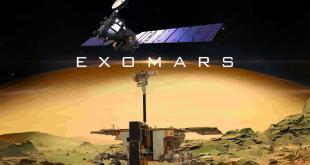 Paris, 5 October 2020. – The French space propulsion specialist ThrustMe gained support from the European Space Agency (ESA) to develop a new electric propulsion system coping with the challenges of the mega-constellation era, the company announced.
Paris, 5 October 2020. – The French space propulsion specialist ThrustMe gained support from the European Space Agency (ESA) to develop a new electric propulsion system coping with the challenges of the mega-constellation era, the company announced.
It is ThrustMe’s first contract with ESA’s ARTES program to support “the development of a breakthrough technology to solve emerging challenges in space associated with the rise of satellite constellations”.
The company develops electric propulsion systems which are not using compressed xenon gas but the mineral iodine as a propellant. “Iodine has been considered a promising alternative propellant for over a decade, and is identified as key strategic technology for space, due to its higher density, easier storage, and lower costs – this while still giving similar, or even better, thruster performance than xenon,” ThrustMe said.
“While most electric propulsion systems currently use xenon propellant, it has become evident that this is not a viable long term solution. If we keep using xenon, the total space industry demand alone will exceed twice the global capacity of xenon production in the next 5-10 years. This is one reason why SpaceX, for example, are using krypton for their Starlink satellites.”
Both NASA and ESA have initiated R&D programs to develop iodine thruster technologies, ThrustMe said, “but so far, only ThrustMe has demonstrated the building blocks of this technology in space.”
ThrustMe is an in-space propulsion company based in the Paris-region, spun out from a joint research lab of Ecole Polytechnique and the French National Centre for Scientific Research (CNRS) and founded by Ane Aanesland and Dmytro Rafalskyi in 2017.





